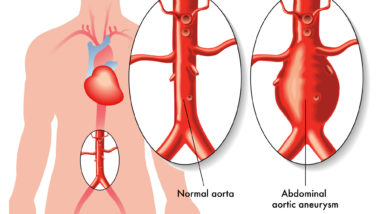Top Class Actions’s website and social media posts use affiliate links. If you make a purchase using such links, we may receive a commission, but it will not result in any additional charges to you. Please review our Affiliate Link Disclosure for more information.

According to the Mayo Clinic, this potentially fatal condition exists when the inner layer of the major artery leaving the heart tears. In the worst case scenario, blood will surge in between the tissue layers and weaken the outermost one until it gives way. This is known as aorta or aortic dissection, and it can result in potentially deadly internal bleeding.
Aorta dissection occurs more frequently in men over the age of 60, but it is still relatively rare.
In November 2015, two studies which were published in the Journal of the American Medical Association (JAMA) and the British Medical Journal (BMJ) Open indicated that current users of fluoroquinolones had a statistically significant risk increase of suffering an aortic dissection or aneurysm—a bulging of the artery which weakens the wall and is often a precursor to a dissection.
The risk increase ranged on a continuum of between 124 percent and 143 percent while fluoroquinolone users within the last 60 days were 48 percent more likely to develop this dangerous condition.
Despite these studies, the U.S. Food and Drug Administration (FDA) didn’t feel they had solid evidence of causation, but sent out a safety precaution warning of aorta dissection in May 2017.
In a recent update to this safety precaution dated Dec. 20, 2018 on the FDA website, the connection between fluoroquinolone use and an increase in the previously rare incidents of aortic aneurysm and aortic dissection seemed to be more firmly established by further review.
Patients who would normally be at risk for these conditions, such as those with high blood pressure—a condition that weakens the walls of blood vessels— as well as those with genetic disorders affecting these tissues, and the elderly should be prescribed other treatment options, according to the FDA warning. Only if there were no alternatives to be considered should fluoroquinolones be used.
According to WebMD, fluoroquinolones are a group of antibiotics used to treat bacterial infections and include the following:
- Ciprofloxacin (Cipro)
- Gemifloxacin (Factive)
- Levofloxacin (Levaquin)
- Moxifloxacin (Avelox)
- Ofloxacin (Floxin)
What are the Symptoms of Aorta Dissection?
Aorta or aortic dissection can feel much like a heart attack, according to the Mayo Clinic. Sudden-onset severe chest pain which is often described as an elephant sitting on your torso is commonly described by patients.
The pain can also be felt in the upper back and shoot to the neck, arms, or down the spine. Accompanied with these symptoms may be a loss of consciousness and/or difficulty taking a breath. Trouble with speech, eyesight, and ambulation may also occur. Immediate medical attention to symptoms improves the chance of survival.
The Mayo Clinic specifies that there are two types of aortic dissection—type A and type B. Type A involves a tear in the upper ascending aorta as it leaves the heart. Of the two types, it carries the most dangerous prognosis. Type B is a tear in the descending aorta which carries oxygenated blood to several organ systems and runs parallel to the spine and down through the abdomen.
Join a Fluoroquinolone Aortic Aneurysm, Aortic Dissection Lawsuit Investigation
If you or a loved one were prescribed Fluoroquinolones such as Cipro, Levaquin or Avelox and were later diagnosed with an aortic dissection or aortic aneurysm, you may have a legal claim. Fill out the form on this page now for a FREE case evaluation or call 1-(855)-JONES-LAW (1-855-566-3752).
ATTORNEY ADVERTISING
Top Class Actions is a Proud Member of the American Bar Association
LEGAL INFORMATION IS NOT LEGAL ADVICE
Top Class Actions Legal Statement
©2008 – 2024 Top Class Actions® LLC
Various Trademarks held by their respective owners
This website is not intended for viewing or usage by European Union citizens.
Get Help – It’s Free
Join a Fluoroquinolone Aortic Aneurysm, Aortic Dissection Lawsuit Investigation
If you qualify, an attorney will contact you to discuss the details of your potential case at no charge to you.
PLEASE NOTE: If you want to participate in this investigation, it is imperative that you reply to the law firm if they call or email you. Failing to do so may result in you not getting signed up as a client or getting you dropped as a client.
E-mail any problems with this form to:
Questions@TopClassActions.com.
Oops! We could not locate your form.












